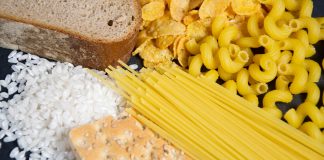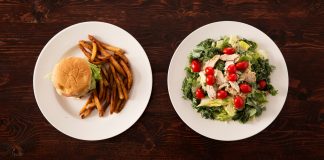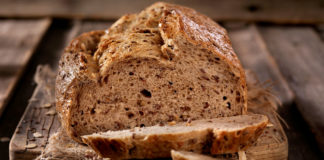Sexual abstinence: absurd, an option, or a necessity?
It was 1984 when hospitals in southern China were besieged by young people in a state of extreme agitation. Thousands of people, of both sexes, were suffering from panic attacks accompanied by fear of death because of the overwhelming belief that their sexual organs were retracting and disappearing, or that their nipples were retracting into their breasts.
Laugh your way to a healthier you
We’re born ready to laugh. In fact, as part of a normal baby’s development, they will begin laughing at about the age of three months. That’s long before we begin to say our first words—older babies begin to start speaking at the age of nine to 12 months.
Are you really okay?
Let me ask you a question: if a friend of yours or I were to stand in front of you today and ask, “Are you OK?” how would you respond? Could you, or would you, share how you really are? As a society, we seem to be becoming more and more aware of the mental health crisis we are in. On 8 September, Australia...
Low-carbohydrate diets may shorten lifespan
A diet based on significantly reducing the amount of carbohydrates on your plate can reduce life expectancy by up to 4 years, according to a study published in The Lancet Public Health.
All juiced up
I have a mentor friend at the gym who I catch up with every now and again between sets. He’s one of those massive dudes who everyone in the gym knows—his walk from the locker to the dumbbell rack consists of greeting and fist-bumping pretty much every guy on the way.
Memory training: The allies we have in the fight against forgetfulness
Memory training is often the only difference between people with impressive memorization skills and those with average memory, researchers suggest. However, the long-term results intersect with a healthy life and learning style.
Between 6 and 10 years of extra life make a difference
Over the past few years, several major media outlets have been talking about the increased longevity of Adventists compared to the populations they live among (CNN, BBC, DW, NBC, CBS, ABC, CBN, National Geographic, Time, Los Angeles Times, Huffington Post, The Atlantic, etc.).
Perceptions of balanced nutrition in the digital age
Attitudes toward food form a complex mosaic shaped by factors such as nutritional needs, hunger, taste preferences, socioeconomic status, demographic and emotional influences, as well as ethical, cultural, and religious values. Equally important is the level of education on nutrition (Gahagan, 2012). This plurality of factors helps explain the global diversity of dietary habits.
14 reasons why cycling is good for you
Could jumping on a bike enrich your life? Here are some reasons you should consider giving it a go.
Plant-based strength
Ancient Greek athletes consumed large amounts of meat, believing that their performance was due to the animal protein it contained. This idea was later strongly supported in the 19th century by the chemist and physiologist Justus von Liebig, who proposed that protein is the main substance for building muscle.
The wonder pill
It was terrifying. They kept trying to comfort me by telling me they had the best surgeons. But they also said that I needed a new liver and that my body might reject it. – Christopher Herrera
Why don’t we eat only brown bread?
This article deals with principles that we know on a theoretical level, but don't really apply in our daily lives. If certain things are true, why are we so reluctant to change?
Worse than death: depression; worse than depression: being judged for it
The latest global statistics on the incidence of depression indicate that more than 300 million people of all ages suffer from this disorder, out of the 7.6 billion people on the planet. This means that about 4% of the world’s population suffers from depression.
Vitamins, explained from A to K
We all know that vitamins are good for us. Many of us take supplements to boost the supply of vitamins in our bodies. However, it wasn’t until 1912 that Polish biochemist Casimir Funk actually came up with the concept of vitamins, which he called "vital amines."
Is sugar the most dangerous drug?
While few people can remember the details of their first hit, everyone can identify with the rush of satisfaction, the tingling delight that starts on the tip of your tongue and then courses through your entire body.


























